- $USD
- SALES TEL: +44 (0)1709 789 933
- Contact us
- Services
- Log in
The term Flexible Coupling is often interpreted in different ways. We believe this term is used to describe the couplings elastomeric properties, i.e. having an elastomer or elastic type element. Typically this element is made of a rubber or urethane compound or derivative. This component makes the flexible coupling ‘torsionally soft’, allowing it to absorb impacts, dampen vibration, and cushion shock loads. It also makes the coupling well suited for applications with high shaft misalignment and, depending on the type used, can accommodate angular, parallel, axial and radial shaft displacements.
Used throughout industry and on a wide range of applications, flexible couplings are ideal for demanding applications. They are considered less expensive when compared to other types of coupling with similar torque capabilities. Flexible couplings are also maintenance-free and don’t require lubrication.
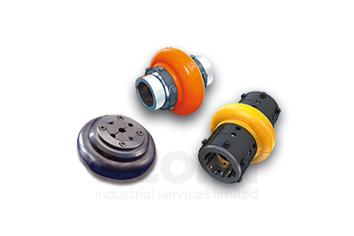
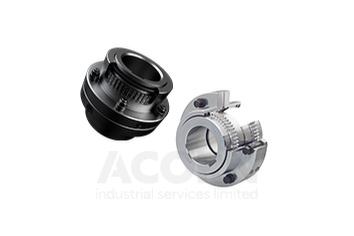
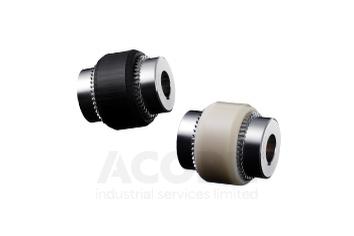
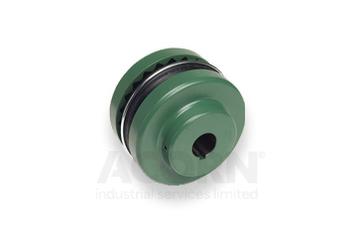
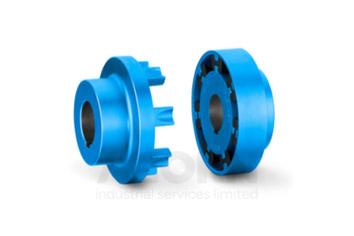
When it comes to motors, selecting the right flexible coupling is crucial for ensuring optimal performance and longevity. Flexible couplings for motors are designed to handle misalignment between connected shafts, absorb shocks, and dampen vibrations, which can significantly enhance the efficiency and lifespan of your motor.
Key Considerations:
Torque Requirements: Understanding the torque your motor generates is essential for choosing a coupling that can handle the load without slipping or wearing out prematurely.
Misalignment Accommodation: Motors and driven equipment often experience some degree of misalignment. Flexible couplings can accommodate angular, parallel, and axial misalignments, ensuring smooth operation.
Vibration Damping: Motors can generate vibrations that, if unchecked, may lead to mechanical wear and noise. Flexible couplings help mitigate these vibrations, protecting both the motor and the connected equipment.
Material and Durability: Depending on the operating environment, you may need couplings made from specific materials like rubber, urethane, or metal composites that can withstand various conditions such as high temperatures or corrosive environments.
At Acorn Industrial Services, we offer a diverse range of flexible couplings tailored for motor applications, ensuring that your machinery operates efficiently and reliably. Whether you’re working with electric motors in manufacturing or heavy-duty engines in industrial settings, our experts can guide you in selecting the perfect coupling to match your needs.
Flexible couplings are an indispensable component in many industrial applications, offering numerous benefits that contribute to the smooth and efficient operation of machinery. Here are some of the key advantages of using flexible couplings:
Absorbs Impacts: Reduces wear and tear on machinery.
Dampens Vibrations: Ensures smoother operation and reduces noise.
Cushions Shock Loads: Protects machinery from sudden shocks.
Maintenance-Free: Reduces downtime and maintenance costs.
Cost-Effective: More affordable compared to other types of couplings with similar torque capabilities.
At ACORN industrial services, our offerings extending beyond just flexible couplings. We are committed to providing other couplings & drives products to meet your industrial needs:

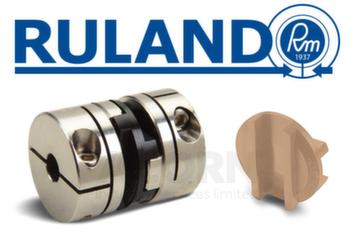
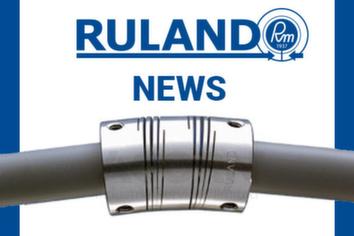
Flexible couplings are mechanical devices used to connect two rotating shafts while accommodating misalignment and absorbing shocks and vibrations. They are designed to transfer torque from one shaft to another, ensuring smooth and efficient operation of machinery.
Choosing the right flexible coupling involves considering factors such as torque requirements, misalignment accommodation, and environmental conditions. Our experts can help you select the best coupling for your needs.
Flexible couplings can accommodate various types of misalignment, including angular, parallel, and axial, ensuring smooth operation even when shafts are not perfectly aligned.
Flexible couplings are typically made from materials like rubber, urethane compounds, and metal composites, chosen for their durability and ability to handle specific operating conditions.